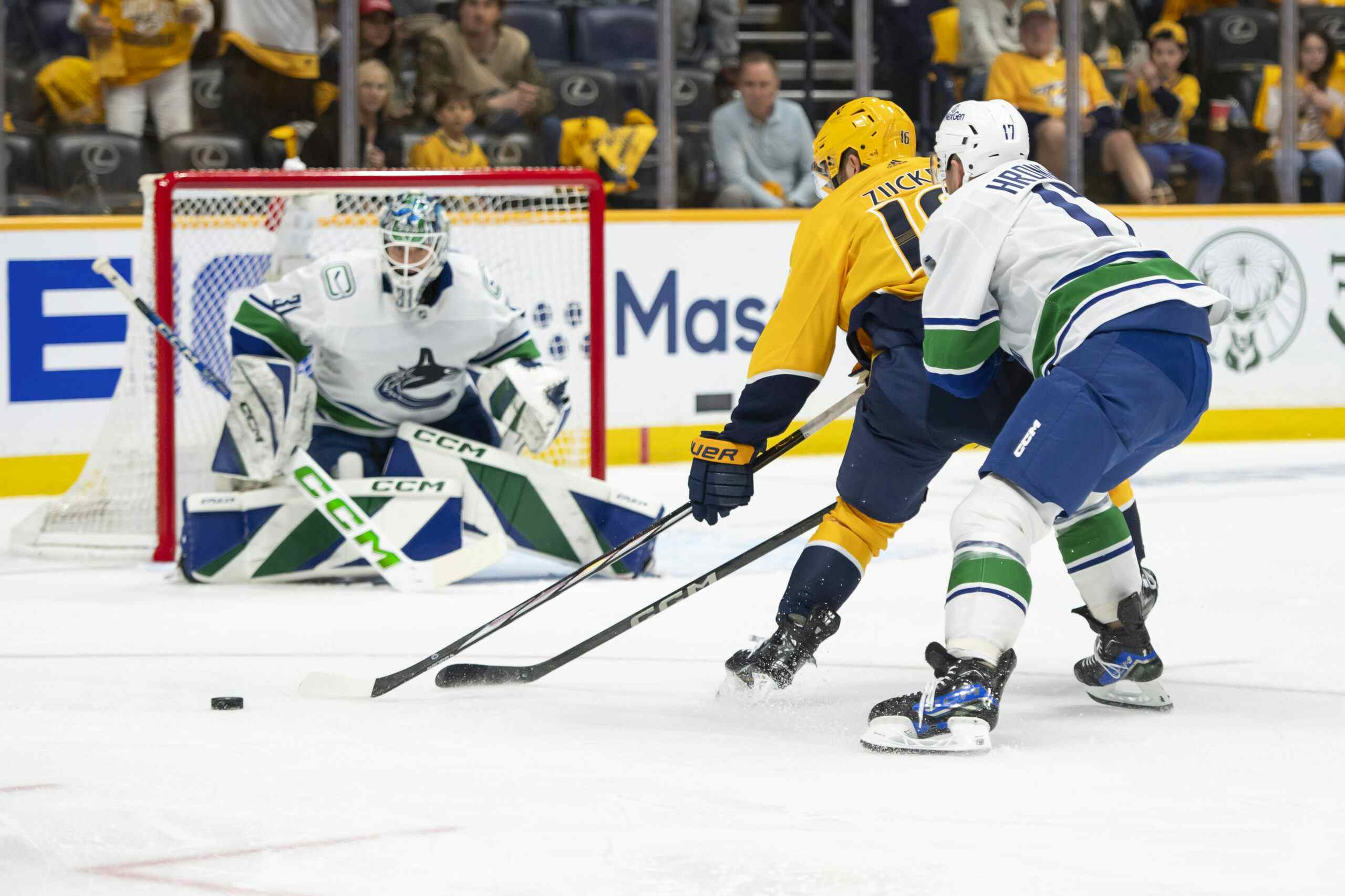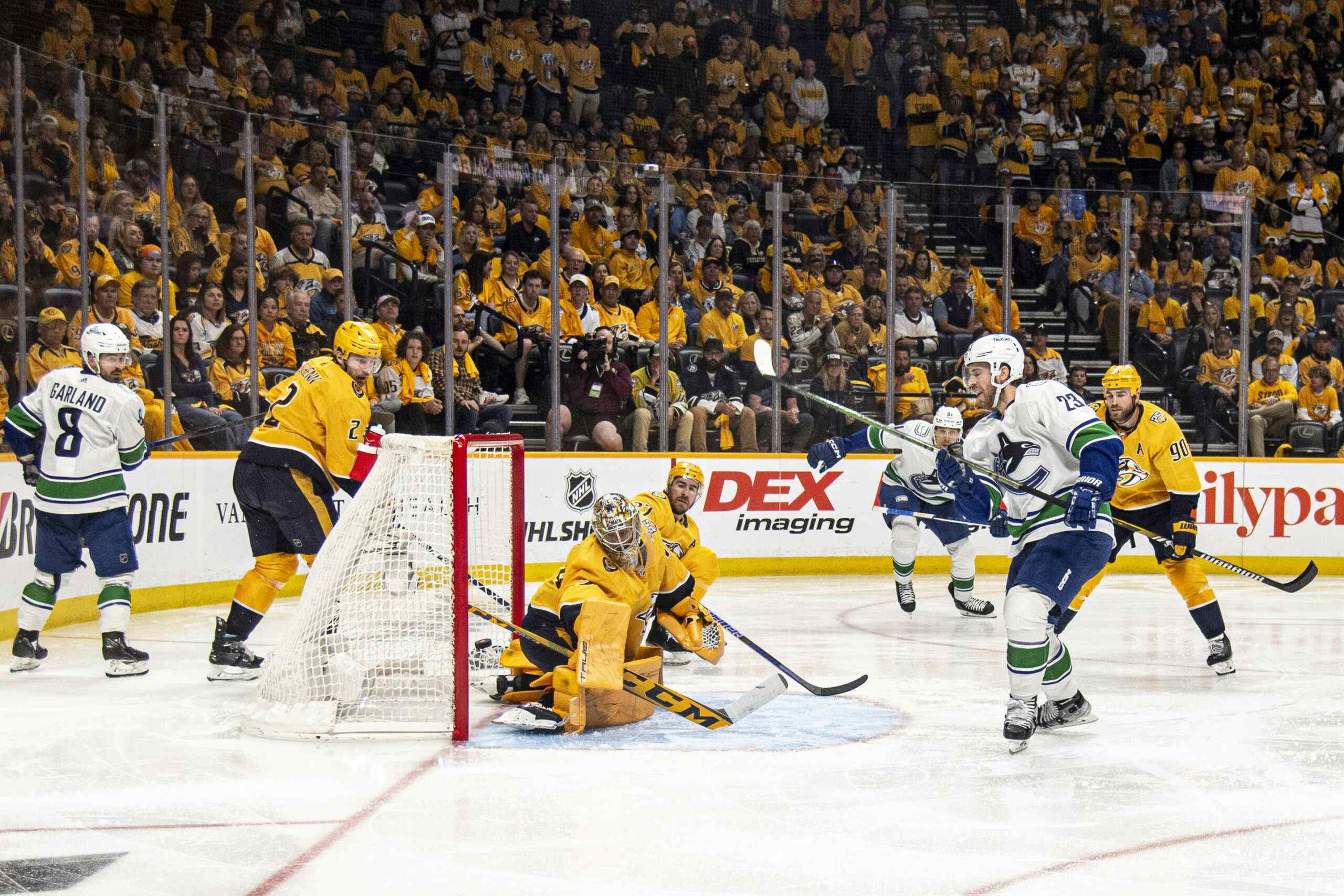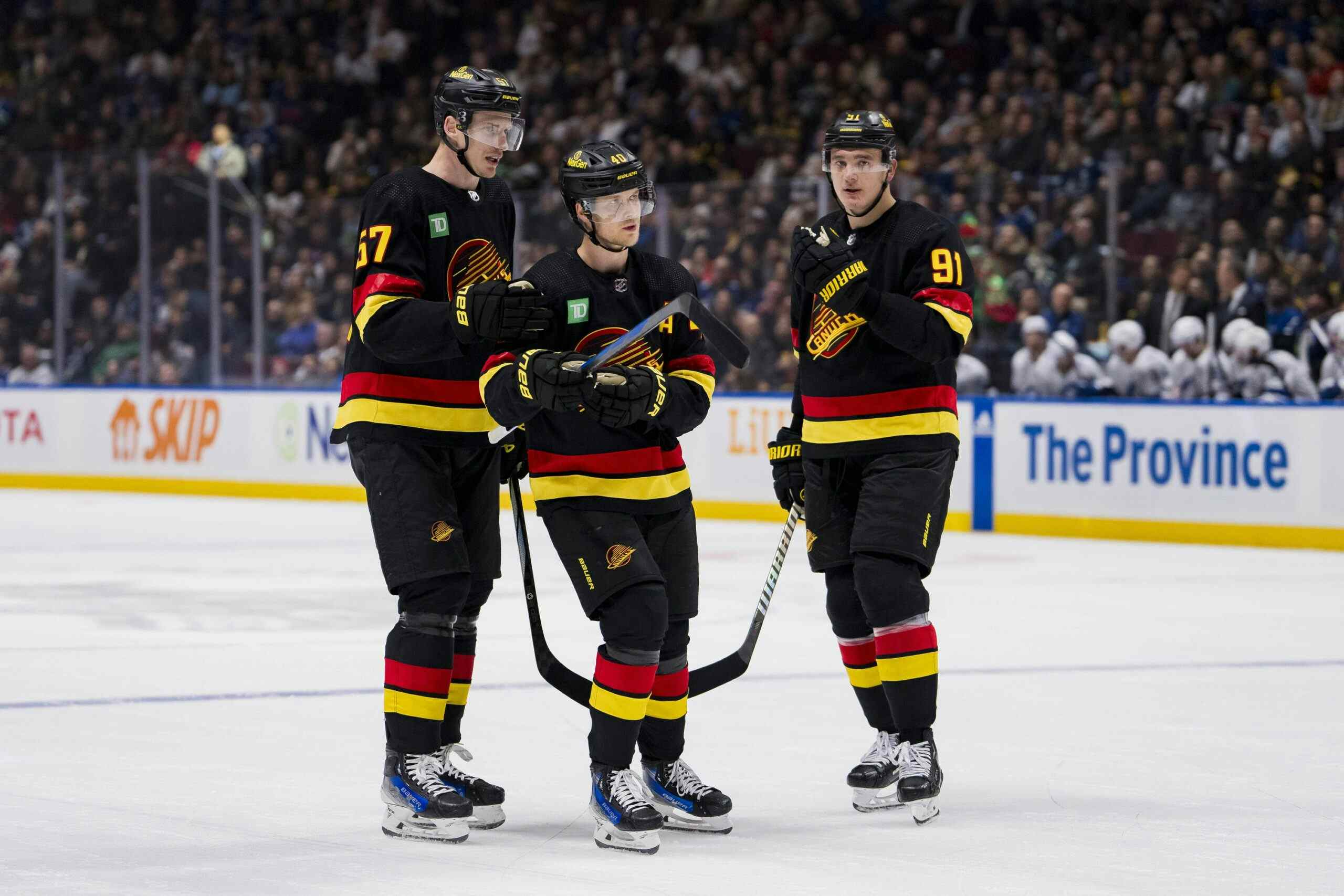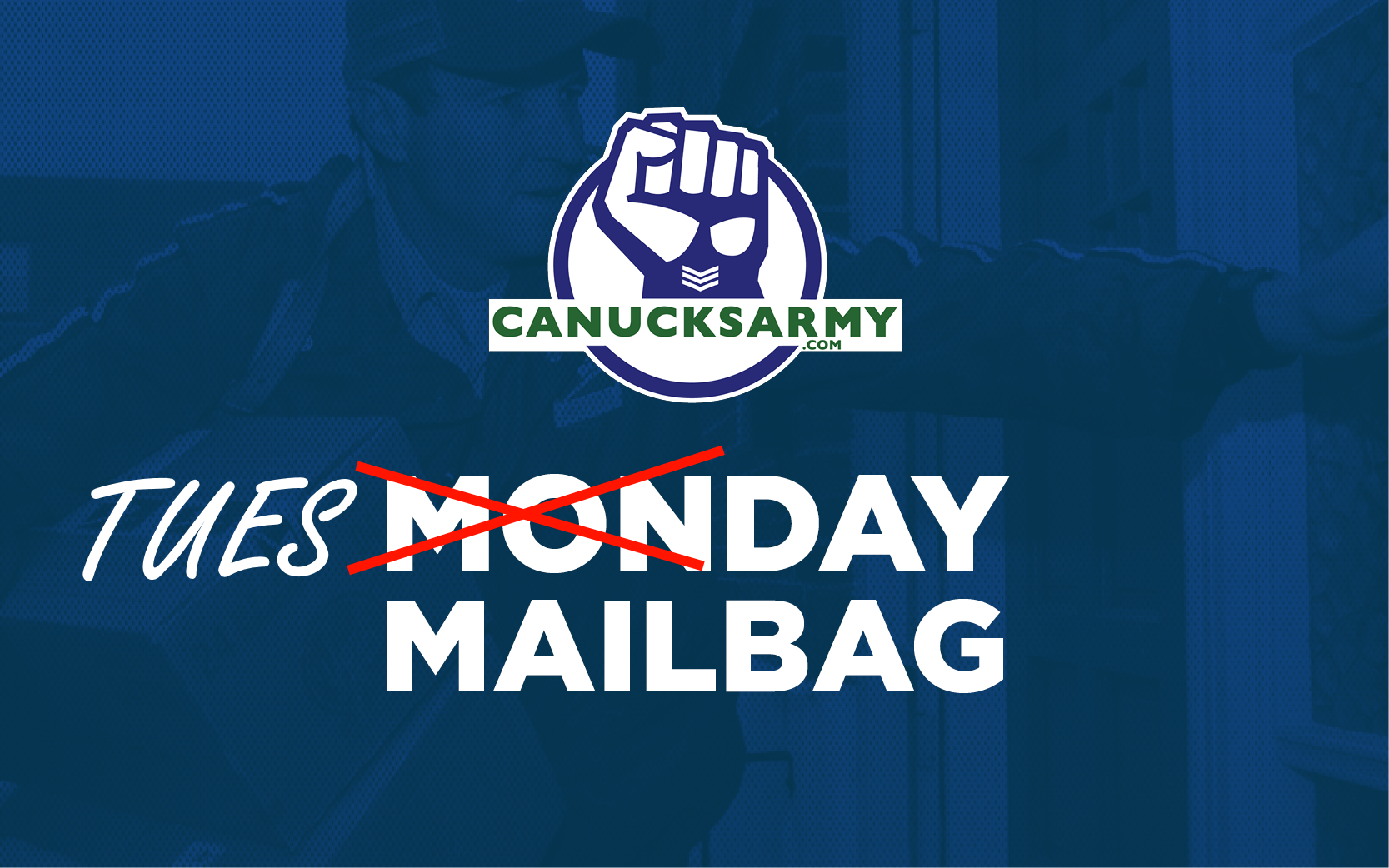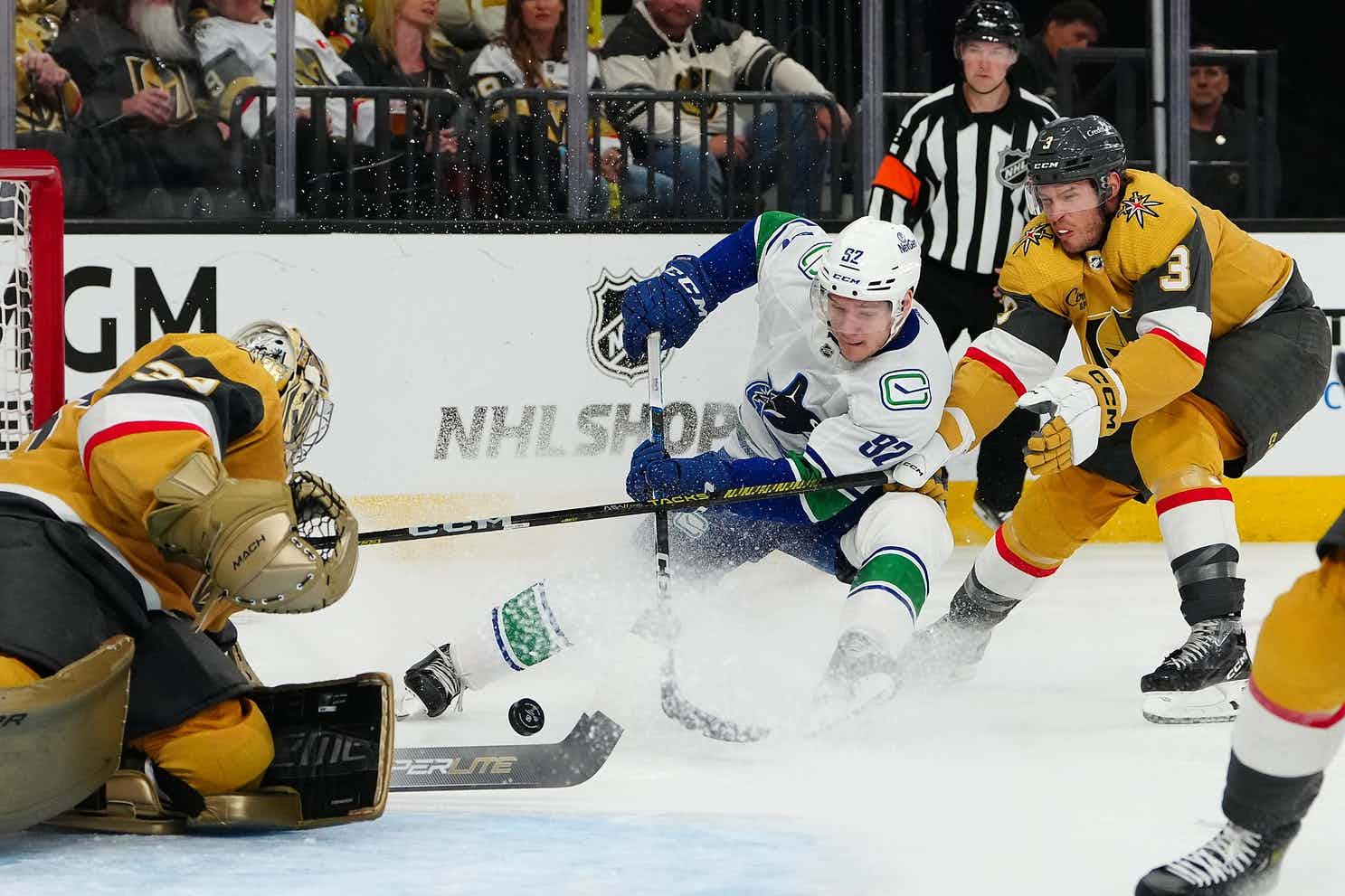Alternate Reality: Captain David Backes?
By Jeff Angus
11 years ago
Over the next few weeks, I am going to take a look at some alternate realities that could have come to fruition if things had played out differently for the Canucks over the past few seasons. The four situations I am going to analyze are:
The David Backes offer sheet (summer of 2008)
The Mats Sundin two-year, $20 million offer (summer of 2008)
The rumored trade offer for the 2nd overall pick in 2009 (summer of… 2009)
Trading for Brad Richards (2008 trade deadline)
As a reminder, these posts are completely fictitious. But hopefully they will entertain and inspire (well, maybe just entertain).
Mike Gillis wasted no time putting his stamp on the Canucks. On July 1st, 2008, his first foray into free agency as an NHL GM, Gillis extended a surprising three-year, $7.5 million offer sheet to rugged Blues forward David Backes.
Backes, at the time, was coming off of a modest 13-goal, 31-point campaign. Many saw top-six upside in him, but the Canucks were thought to be paying a premium for a glorified checker. We all know what happened since then – the Blues matched the offer sheet, and Backes is now the team captain and one of the most well-rounded forwards in the league. He was also a victim of some very audible trash talk during the first round of the 2009 playoffs against the Canucks.
What would have happened if the Blues didn’t match?
First off, we never would have found out what Alex Burrows and Ryan Kesler thought about Backes’ wife, Kelly.
Since scoring 13 goals in 2007-08, Backes has two 30+ goal campaigns, and has averaged well over 100 PIM each season. Assuming he signed with the Canucks, Backes would have competed for the second line center spot with Ryan Kesler (these alternative realities are in a vacuum – if Backes signs, it means that the Sundin offer never existed – bear with me). Backes would have provided the Canucks with a player they are still looking for today – the elusive and mythical beast known as the power forward.
Derek Zona set the parameters for a legitimate Power Forward season at "25 goals per season, and 123 hits" (or their equivalent pace of .3 goals per game, and 1.5 hits per game over sixty games in a season). When he ran the numbers, he found only two players in the entire NHL matched that description. Those two players were Shane Doan and Alexander Ovechkin, and he dubbed them the "Mythical Beasts."
Backes isn’t far behind those two. In his last four seasons, he has 226, 213, 266, and and 204 hits, respectively. He would have been the power forward that the Canucks have been searching for since Todd Bertuzzi’s brief stretch of dominant play from 2001-2004.
The Canucks finally landed the elusive power forward. They never trade for Steve Bernier, instead sending those draft picks to the Blues for compensation.
Backes, thanks to a strong training camp, forces Ryan Kesler to the right wing. Kesler flourishes offensively, freed up from the defensive responsibilities that a center typically has.
Veteran winger Pavol Demitra (RIP) joins Backes and Kesler on the left wing. The Canucks and the Blues meet in the first round, and the spotlight is on Backes as he faces his former club. He tallies two goals and a lot of hits while the Canucks go on to sweep the Blues in four straight games. The Blues struggle to recover, and they end up reacquiring Chris Pronger from Anaheim in the summer of 2009, hoping to fill the leadership void in the dressing room. They send prospect Alex Pietrangelo and a number of draft picks to the Ducks.
In the second round, the Canucks are matched up against the Chicago Blackhawks. Backes is matched up against Chicago’s top line, and he does well to shut them down. However, the Canucks come unraveled, and there is nothing Backes can do to help as the Blackhawks power past them in six games.
Flash forward three years.
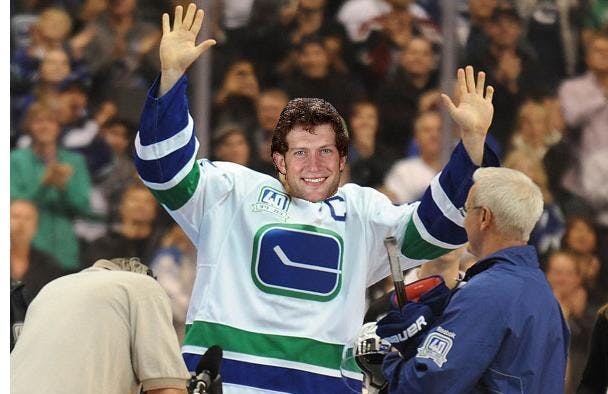
Backes is the captain of the Canucks, having received the honor after the Canucks decided to remove the C from Roberto Luongo’s sweater mask. He is centering the All-American second line, with Chris Higgins on the left side and Kesler on the right. He helped the Canucks advance to the 2011 Stanley Cup Final against Boston, and his strong leadership kept the rest of the team in line, even with significant injuries to the defensive core. Brad Marchand attempts to goad Backes into a fight in Game 2, but Backes decides to let his play do the talking, ending Marchand’s series with a massive open ice check in the first period of Game 3, setting the physical tone for the rest of the series.
Backes also reminds his teammates to avoid any hits to the head, as the league is starting to crack down on any hits that lead to concussions. Aaron Rome heeds his advice, and holds off on crunching Nathan Horton later on in the game. That proves to be important, as Backes springs Rome for a breakaway in overtime, and Rome wires a slap shot past Tim Thomas to take a commanding 3-0 series lead (Rome was in the penalty box for a delay of game penalty).
The Canucks drop Game 4 in Boston before returning home for Game 5. The only goal of the game is scored by Maxim Lapierre, and the Canucks capture their first Stanley Cup. Roberto Luongo wins the Conn Smythe with solid play against the Bruins, Sharks, and Predators.
Backup goaltender Cory Schneider is traded to Colorado that summer, as Luongo firmly established himself as the goaltender of the present and future for the Canucks.
The American influence in Vancouver is strong – Backes and Kesler were able to convince their 2010 Olympic linemate Zach Parise to sign with the Canucks in the summer of 2012. The Canucks never traded for David Booth, as Backes was supplying the size and scoring they wanted out of a second line forward. The lockout is the only thing stopping the Parise-Backes-Kesler line from being one of the best in hockey (and don’t forget about Alex Burrows and the Sedin twins).
So, instead of landing Backes, Parise, and a Stanley Cup, we ended up with a goalie controversy and a few years of Steve Bernier. Life isn’t fair, I guess.
Recent articles from Jeff Angus

